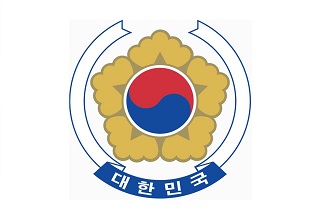Regarding the Inspection and Quarantine Requirements for Peanut and Sesame from Chad to China
I. Inspection and quarantine basis
(I) "Biosafety Law of the People's Republic of China";
(II) "Law of the People's Republic of China on Entry and Exit Animal and Plant Quarantine" and its implementing regulations;
(III) "Food Safety Law of the People's Republic of China" and its implementing regulations;
(IV) "Administrative Measures for Import and Export Food Safety of the People's Republic of China";
(V) "Protocol on Plant Quarantine Requirements for the Export of Shelled Peanuts from Chad to China between the General Administration of Customs of the People's Republic of China and the Ministry of Trade and Industry of the Republic of Chad";
(VI) "Protocol on Inspection and Quarantine Requirements for the Export of Sesame from Chad to China between the General Administration of Customs of the People's Republic of China and the Ministry of Trade and Industry of the Republic of Chad".
II. Names of commodities allowed for entry
Peanuts (Arachis hypogaea L.) and sesame (Sesamum indicum L.) in this announcement refer to non-seed shelled peanuts and sesame seeds grown and processed in Chad for consumption or processing.
III. Permitted origin
The whole territory of Chad.
IV. Enterprise registration
1. Peanuts. Exporters and storage companies of peanuts exported to China shall be registered with the Chinese Customs. The Ministry of Trade and Industry of Chad shall recommend qualified companies to the Chinese Customs in advance. After inspection or review by the Chinese Customs, the companies shall be registered and the list of relevant companies shall be published on the customs website.
2. Sesame. The production, processing and storage companies of sesame exported to China shall be registered with the Chinese Customs. The Ministry of Trade and Industry of Chad shall recommend qualified companies to the Chinese Customs in advance. After inspection or review by the Chinese Customs, the companies shall be registered and the list of relevant companies shall be published on the customs website.
V. Pests of concern to the Chinese Customs
(I) Peanuts exported to China shall not carry the following quarantine pests:
1. Trogoderma granarium
2. Callosobruchus analis
3. Radopholus similis
(II) Sesame exported to China shall not carry the following quarantine pests:
1. Trogoderma granarium
2. Callosobruchus analis
3. Sorghum halepense
VI. Pre-shipment requirements
(I) Production requirements
1. Peanuts. The Ministry of Trade and Industry of Chad should supervise the establishment of an integrated pest management system (IPM) for peanut exporting enterprises to China, reduce the occurrence of pests of concern to China Customs, and ensure that screening and other cleaning measures have been taken during the collection, storage and transportation of peanuts or before shipment, and that plant residues, impurities and dangerous, toxic and harmful weed seeds are not allowed to be carried.
2. Sesame. The Ministry of Trade and Industry of Chad should adopt internationally recognized investigation and monitoring methods to conduct epidemic investigations on quarantine pests of concern to China Customs during the sesame growth period and sesame storage period, and provide investigation reports on the occurrence of the above quarantine pests according to the needs of China Customs, including investigation methods, results and other contents. Once other quarantine pests are found, the Ministry of Trade and Industry of Chad should immediately notify China Customs, suspend the export of products of the problematic enterprises to China, and urge the enterprises to make rectifications. The enterprises can resume exporting their products to China only after the rectifications are qualified and confirmed by China Customs.
(II) Packaging and transportation requirements.
Peanuts and sesame exported to China must be packaged to avoid leakage during transportation. The packaging must be clean, unused, in compliance with plant quarantine requirements, and free of toxic and hazardous substances.
Each peanut package should have at least one label stating the company name, registration number, and "从乍得出口到中华人民共和国的脱壳花生""SHELLED PEANUT FROM CHAD TO BE EXPORTED TO THE PEOPLE'S REPUBLIC OF CHINA" in Chinese and English. The shipping container must be clean.
Each sesame package should state "This consignment is exported to the People's Republic of China" and the origin of the sesame, the name of the processing unit and its registration number, and the name and address of the exporter in Chinese or English. Before Chad sesame is shipped to China, the shipping tools must be thoroughly inspected to prevent the mixing of weed seeds, live insects, other grain impurities, plant residues, soil and other pests or other foreign impurities.
(III) Product requirements.
Peanuts and sesame seeds exported to China should comply with the relevant principles of the World Trade Organization Agreement on the Application of Sanitary and Phytosanitary Measures, China's laws and regulations on plant quarantine and China's national food safety standards, and should not contain quarantine pests of concern to China Customs, soil, feathers, animal feces, live insects, weed seeds and other plant residues.
(IV) Pre-export inspection and quarantine and certificate requirements.
1. Peanuts. Before export, the Ministry of Trade and Industry of Chad should conduct inspection and quarantine on peanuts. Aflatoxin limit test should be conducted on each batch of peanuts to ensure that it meets China's national food safety standards (GB 2761). For goods that meet the requirements, the Department of Plant Protection and Regulation (DPVC), the central agency responsible for plant protection and plant quarantine control in Chad, will issue a plant quarantine certificate and indicate in the additional statement: "The consignment meets the phytosanitary requirements described in the Peanut Protocol from Chad to China, and is free from the quarantine pests concerned by China." At the same time, the company name, registration number and container number of this batch of goods should be indicated. For goods with live insects, fumigation treatment should be carried out before export, and the fumigation treatment index should be indicated on the plant quarantine certificate.
2. Sesame. Before export, the Ministry of Trade and Industry of Chad shall conduct inspection and quarantine on sesame, and issue a plant quarantine certificate for each batch of sesame that meets the requirements of the protocol, indicating the sesame variety and production area, and in the additional statement: "This batch of goods complies with the provisions of the Protocol on Inspection and Quarantine Requirements for the Exportation of Sesame from Chad to China, and is free from the quarantine pests concerned by China." Before export, Chad's sesame exported to China should be quarantined to ensure the killing of live insects, especially storage pests. The quarantine treatment method (such as technical requirements such as drugs, temperature, time, etc.) shall be jointly confirmed by both parties and indicated in the plant quarantine certificate.
VII. Entry Inspection and Quarantine
(I) Certificate Verification.
1. Verify whether it comes from a registered enterprise.
2. Verify whether the plant quarantine certificate is authentic and valid.
(II) Goods Inspection.
1. According to the relevant laws, administrative regulations, rules and regulations, and in combination with the requirements of this announcement, peanuts and sesame shall be inspected and quarantined, and shall be allowed to enter the country after passing the inspection.
2. Peanuts and sesame exported to China shall be inspected and quarantined at the supervision sites designated by the Chinese Customs.
(III) Treatment of unqualified goods.
1. Peanuts.
(1) If there is no valid plant quarantine certificate, it shall be returned or destroyed.
(2) If it comes from an unregistered enterprise, it shall be returned or destroyed.
(3) If unapproved genetically modified ingredients are found, it shall be returned or destroyed.
(4) If safety and sanitation items such as aflatoxin exceed the limit of China's national food safety standards, it shall be returned or destroyed. If other situations that do not meet China's food safety requirements are found, they shall be handled in accordance with relevant laws and regulations.
(5) If the quarantine pests of concern to China Customs listed in this announcement are intercepted, the relevant goods shall be allowed to enter the country after passing effective quarantine treatment. If quarantine treatment cannot be implemented, it shall be returned or destroyed.
(6) If other harmful organisms are intercepted, they shall be handled in accordance with the relevant provisions of the Law of the People's Republic of China on Entry and Exit Animal and Plant Quarantine and its implementing regulations.
If the above non-compliance is found, China Customs will notify the Ministry of Trade and Industry of Chad and, depending on the severity of the violation, take measures such as suspending the relevant enterprises' export qualifications to China, or even suspending the export of Chadian peanuts to China, until China Customs confirms that the problem has been effectively rectified.
2. Sesame.
(1) If there is no valid plant quarantine certificate, it shall be returned or destroyed.
(2) If it comes from an unregistered processing enterprise, it shall be returned or destroyed.
(3) If quarantine pests of concern to China Customs or other living quarantine pests, plant residues, etc. are found, they shall be treated with pest control, returned or destroyed.
(4) If weed seeds or other non-compliance with China's entry quarantine requirements or food safety requirements is found, it shall be handled in accordance with relevant laws and regulations.
If the above non-compliance is found, China Customs will notify the Ministry of Trade and Industry of Chad and, depending on the severity of the violation, take measures such as suspending the relevant enterprises' export qualifications to China, until China Customs confirms that the problem has been effectively rectified.
GACC
Sep. 23, 2024




